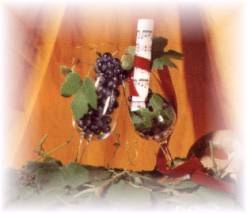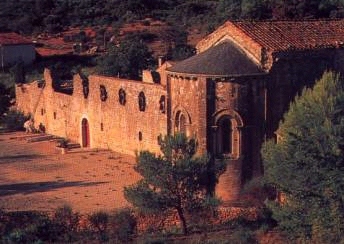Saint Chinian is a bustling village dating back to 825 when Saint Anian founded a monastery, possibly on the site of what today is the Marie (Town Hall). The monastery prospered and with it the village that had grown up around it. The village survived the Albigensian Crusades relatively unscathed and emerged in the 17th and 18th centuries as a center for the manufacture of high quality cloth.

